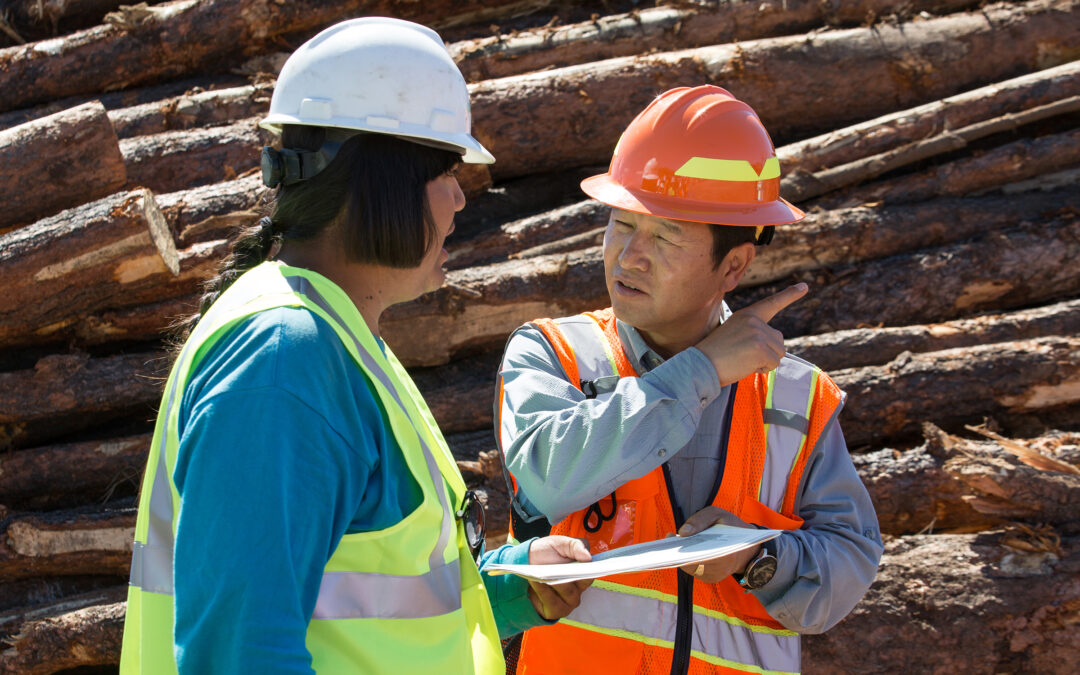A pilot project has the potential to unlock a critical bottleneck in forest restoration and wildfire prevention efforts across northern Arizona by creating markets for restoration byproducts like wood chips from small-diameter trees.
The pilot project, led by professor Han-Sup Han of NAU’s Ecological Restoration Institute (ERI), will test the logistics and efficacy of chipping and shipping wood products via railway transportation with the goal of expanding forest product markets domestically and internationally and accelerating forest restoration efforts.
“This collaboration is an opportunity to address forest health issues facing our region and create renewable sources of energy,” said NAU President Rita Cheng. “It is another example of the innovative ways our researchers are working together to solve critical issues facing our region, state and the world.”
The first phase of the project will take place at the Department of Emergency and Military Affairs (DEMA) Camp Navajo Training Center over the course of eight days. It includes chipping 1,300 tons of small-diameter logs extracted from forest restoration projects like the Four Forest Restoration Initiative, which has struggled to find markets for the low-value wood removed from its thinning efforts. The wood chips will then be loaded onto 60 shipping containers bound for South Korea via railway and cargo ships.
A team of researchers from ERI has worked closely over the past year with the Arizona Department of Forestry and Fire Management (DFFM), DEMA, Hyundai Merchant Marine, BNSF Railway and the U.S. Forest Service to launch this pilot project.
“This pilot project allows us to remove a portion of the biomass bottleneck from our forests, and in turn, provide a fuel source to a foreign country,” DFFM director David Tenney said. “The biomass bottleneck continues to be a roadblock and prevents us from moving forward with other crucial project work. The chip-and-ship pilot program grants a unique opportunity to partner with South Korea, which deems biomass a vital fuel source. If proven successful, we can potentially expand to other markets across the country and abroad.”
South Korea places a higher value on wood chips and other forest products due to their demand in its renewable energy market. The country uses these products to generate electricity and offset the use of coal. As this market has steadily increased in size over the last three years, it represents a significant opportunity to expand wood product exports for Arizona’s forest-based enterprises.
To celebrate the start of the chipping phase, project partners held a special event at Camp Navajo on Aug. 9, giving attendees, including President Cheng, the opportunity to view a project demonstration and ask questions.
NAU Marketing | Office of the Vice President for Research
(928) 523-5556 | kerry.bennett@nau.edu
Source: https://nau.edu/nau-research/nau-pilot-project-tests-exporting-wood-products-via-railway-to-speed-forest-restoration/


